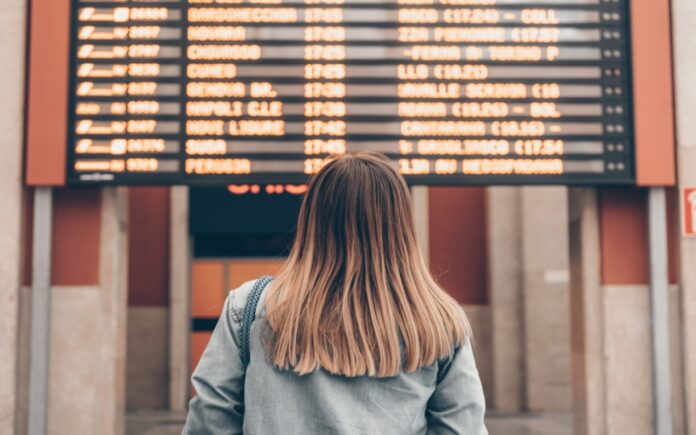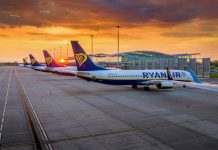Airports can be hell. The queues, the delays and cancellations, lost baggage, the rowdy footballers on an end-of-season bromance in the airport bar; it’s stressful.
As Aussies return to domestic and international travel in droves, there are more disruptions than ever.
In fact, 16 per cent of Australians say they’ve had a flight cancelled in the past year, and 48 per cent say they’ve changed their plans due to other disruptions, according to financial adviser Money.com.au.
The New Daily spoke with experts to get some tips on navigating the stresses of travelling this holiday season. And no, their suggestions don’t include $18 pints in the airport lounge or signing up for a wine subscription service.
Domestic travel is expected to boom as Australians make up for lost time. Photo: Getty
Domestic tourism has bounced back quicker than experts initially expected.
According to Deloitte Australia, travel for holidays and to visit friends and relatives returned to 85 per cent and 80 per cent of 2019 levels, respectively, in the first half of 2022.
This appetite for domestic travel is expected to continue as Australians make up for lost time, due to lockdowns, to holiday and reconnect with loved ones.
The forecast weakness in the Australian dollar will likely mean many of us will holiday closer to home rather than venturing overseas.
However, the promising bounce back in domestic travel has been met with worker shortages, leading to flight delays and cancellations, luggage disruptions, and strikes.
As of October 2022, on-time arrivals and departures across Australia’s airlines were well below the standard.
Data released by the Department of Transport showed performance across all major airlines averaged 69.3 per cent for on-time arrivals and 68.5 per cent for on-time departures.
Travellers must also contend with high prices, unexpected fees, and illness.
Airfares have risen due to strong demand for travel and constrained supply as airlines scale back flights in response to high jet fuel costs and operational challenges.
Licensed financial adviser and Money.com.au spokesperson Helen Baker told TND that many travellers are changing their travel plans to avoid these high costs.
“It might be best for some people to delay travel instead of going now or consider doing alternative kinds of holidays,” she said.
Licensed financial adviser Helen Baker. Photo: Money.com.au
“After yet another rise in the home loan rate people are going to have a problem in the new year repaying these travel expenses if they put all the purchases on credit card,” she said.
“People have a lot of uncertainty about travel and finances, and the dollar is down, so it’s all quite expensive – so I think there will be a lot more holidaying at home,” she said.
Ms Barker said another way for people to mitigate the stresses of travel is to take out appropriate travel insurance. But she warns people to go through policies thoroughly as the “devil is in the detail”.
“People often choose to go without insurance and take a big risk,” she said.
“I think it’s always good to talk to the actual travel agent as opposed to doing it yourself.
“Get them to recommend a policy that’s appropriate.”
Dave Burt, a travel industry expert for 1000 Mile Travel Group, told TND that it’s essential for travellers to take out insurance that covers COVID.
“Now that generally puts the price up,” he warned.
“But anything that looks on the surface like a really good deal probably isn’t going to include COVID coverage.
“The most expensive option is the better option given the current climate … it is definitely worth it for the peace of mind.”
Mr Burt’s number one tip for people venturing abroad is to download a copy of their international vaccination certificate to their mobile device.
“There are still places that won’t let you in without it,” he said
“It’s straightforward to do – it’s right there in the Medicare app.”
He also said that being prepared, checking in early and having your boarding pass printed out or on your phone will save you a lot of hassle at the airport.










